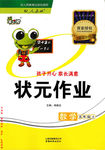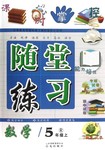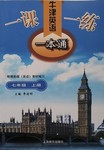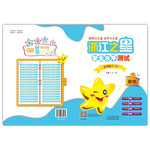题目内容
Every year on my birthday, from the time 1 turned 12, a white gardenia(栀子花)was sent to my house. It did not come with a card or note of any kind, but I loved the beauty and sweet smell of the flower.
And I never stopped imaging who the giver might be. My mother helped me to imagine. She’d ask me if I had done something kind for anyone. Perhaps the neighbor I’d helped carry heavy bags for, or one of my classmates who I helped the lessons with. As a teenager, though, I had more fun thinking that it might be a boy I liked at school.
When I was 17, a boy broke my heart and I cried myself to sleep. When I woke up in the morning, there was a message on my mirror, “If we let sadness go, happiness will surely come to you.” I thought about those words for a long time. When I finally went to get the glass cleaner, my mother knew everything was all right again.
One month before I finished high school, my father left us forever. I lost interest in all the celebrating activities such as the class play, taking photos with classmates before leaving the high school where I had studied for three years. Although my mother was very sad, she still encouraged me to take part in all those. She wanted her child to have a sense that there was still beauty in the face of bad luck, just like the gardenia—lovely, strong and perfect.
My mother died 10 days after I was married. I was 26. That was the year gardenias stopped coming.
51. From the age of ________,the writer began to receive a gardenia every year on her birthday.
A. 17 B. 12 C. 26 D. 10
52. What can we infer(推断) from the underlined sentence in Paragraph 3?
A. Mother was clever. B. I was still sad.
C. The glass was dirty. D. Mother really understood me.
53. The writer lost interest in activities before leaving high school because ________.
A. no fl![]() owers were sent to her B. a boy broke her hear
owers were sent to her B. a boy broke her hear
C. her father died D. there was no beauty in her life
54. In fact it was ________ who sent the flowers.
A. the writer’s father B. ![]() the writer’s mother
the writer’s mother
C. a boy classmate D. one of the neighbors
55. The passage mainly talks about ________.
A. mother’s love B. the writer’s bad luck
C. teenagers’ problems while growing up D. how to pace difficulties
B D C B A

 开心蛙状元作业系列答案
开心蛙状元作业系列答案 课时掌控随堂练习系列答案
课时掌控随堂练习系列答案 一课一练一本通系列答案
一课一练一本通系列答案 浙江之星学业水平测试系列答案
浙江之星学业水平测试系列答案
Very hot weather is common in many parts of the world. Although hot weather just makes most people hot, it can cause medical problems and death.
Floods, storms and other terrible natural events kill thousands of people every year. And we hear much about them in news reports. We general hear little about heat, which experts say may be nature’s most dangerous killer.
Health experts say that since the year 1900, very hot weather has killed more people in the United States than any other natural event. One year--- the unusually hot summer of 1980 heat caused about 1,700 deaths in the United States. In 1995, more than 600 people died in another heat wave in one city----Chicago, Illinois.
Besides drinking lots of cool water , doctors say there are some other things to do to protect against the health dangers of heat. Stay out of the sun, if possible. Wear loose and light—colored clothes. Wear a hat while in the sun. Eat fewer hot and heavy foods. And, when possible, cook foods during cooler time of the day. If possible, rest more often.
Health experts say these simple steps can prevent the dangerous health problems caused by heat. They will prevent sickness, help you feel better and may even save your life.
【小题1】Hot weather is common ______.
| A.all over the world. | B.in many parts of the world |
| C.in some parts of the world | D.in a few parts of the world |
| A.heat | B.a flood | C.a storm | D.an earthquake |
| A.in 1900 | B.in 1980 | C.in 1995 | D.in 2000 |
| A.all kinds of terrible natural events in the world |
| B.some health problems caused by hot weather |
| C.how to prevent health problems |
| D.the health problems in hot weather and the ways to stop them |
钢琴家朗朗是世界古典音乐新一代领军人物,被誉为“当今世界最年轻的钢琴大师”.
Lang Lang, called “Chinese Mozart”, one of the best-known Chinese pianists in the world, was born in Shenyang in 1982. He began to take piano lessons at the age of three. He played the piano at least 20 hours a week at that time. At the age of five, he won the Shenyang Piano Competition. Four years later, his father took him to Beijing to study at the Beijing Central Music Conservatory(中央音乐学院). When he was 11, he won the first prize at the Fourth International Young Pianists Competition in Germany. In 1996, he went to the United States to study music. Soon he became famous all over the US, and then around the world.
The road to success has never been easy. Lang Lang’s father even stopped his job in his police office. For over ten years, he followed Lang Lang everywhere he went, not only as a father, but also as a manager, tutor and friend, while his mother stayed in Shenyang to make money. In spite of(尽管) giving on average over 150 performances around the world every year now, he still finds time to practice and learn new works. Lang Lang considers himself lucky and believes he should give something back. He has helped the children in poor areas a lot.
【小题1】How old was Lang Lang when he went to Beijing to study?
| A.He was three. | B.He was five. | C.He was nine. | D.He was eleven. |
| A.They went on vacation to Beijing. |
| B.Their family needed money at that time. |
| C.Lang Lang wanted to take part in the Piano Competition. |
| D.Lang Lang went there to study at a famous music conservatory. |
| A.In Germany. | B.In the United States. | C.In Japan | D.In China. |
| A.Lang Lang went to the United States to study music at the age of 14. |
| B.Lang Lang’s father had to stay in Shenyang to make money. |
| C.Lang Lang’s parents have done a lot for him to be a famous pianist. |
| D.Lang Lang is called “Chinese Mozart” because he plays the piano very well. |
| A.It’s not very difficult to be a pianist. |
| B.A pianist is always popular in the world. |
| C.You have to practice and learn much to be successful. |
| D.Pianists never hate playing the piano because it’s interesting. |